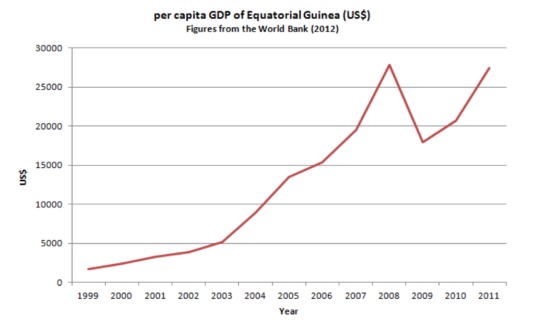- About
- Topics
- Picks
- Audio
- Story
- In-Depth
- Opinion
- News
- Donate
- Signup for our newsletterOur Editors' Best Picks.Send
Read, Debate: Engage.
As a result of rich oil and gas reserves, Equatorial Guinea has managed to develop a per capita GDP just below that of Finland, and yet, the small Central African country continues to suffer a child mortality rate of over 12%.
It is against such figures that the government of France has issued an international arrest warrant for, and opened a corruption investigation into the president’s son, Teodorin Mangue, who as well as being "known for his lavish lifestyle', also happens to be the country's vice president.
In August this year, French authorities confiscated eleven of Mangue's luxury cars in Paris, that along with a $180m house located in one of the French capital's most exclusive zipcodes, a wine collection valued at $2m, and furniture worth $50m, are all believed to have been purchased with funds misappropriated away from the Eqautorial Guinean state.
Mangue's father, President Teodoro Obiang Nguema Mbasogo, is one of the world's longest ruling dictators, having seized power in a 1979 military coup, since which time he has won almost 100% of votes in elections strongly questioned by international observers. Similarly, the president is also one of the world's richest heads of state, with Forbes estimating his personal wealth as standing at around $600m USD.
Equatorial Guinea's meteoric economic rise began in the mid 1990s as the small nation's oil was sourced and production increased. However, despite this tremendous source of new wealth;
fewer than 1% of children are able to sleep under mosquito nets in a country where 38% of infant deaths result from malaria,less than 60% of children are able to finish primary school,only 50% of the population has access to clean water or adequate sanitation,and only 65% of women are provided with access to a qualified health professional during pregnancy.
29% of Equatorial Guinea's oil is sold to the United States. The US orginally broke off all diplomatic ties with Equatorial Guinea in 1995 in a protest against the country's negative human rights record. However, under the Bush administration, relations were reestablished after agressive lobbying from US oil companies keen to compete with China's increasing presence in the region. France, now, has become the leading international voice criticising the regime, particularly after a successful petition was brought before the French courts, sponsored by three French action groups - Survie, Sherpa, and Fédération des Congolais de la Diaspora.
However, the government of Equatorial Guinea has made a counter complaint against France to the ICJ, denying any wrongdoing, and protesting the "colonialist" actions of the French nation.
As the case continues, and however the story ends, the present saga surrounding Equatorial Guinea remains a stark reminder of the shameful inequalities that result from both corruption and the skewed distribution of state income. As the international community looks on, and in an age of increasingly international finance, the hope of the people of Equatorial Guinea - an indeed those resident in any state riddled with corruption - lies in the precedent set here over the coming months.
Read: Human Rights Watch | World Bank |
Petition: EG Justice |
By copying the embed code below, you agree to adhere to our republishing guidelines.

